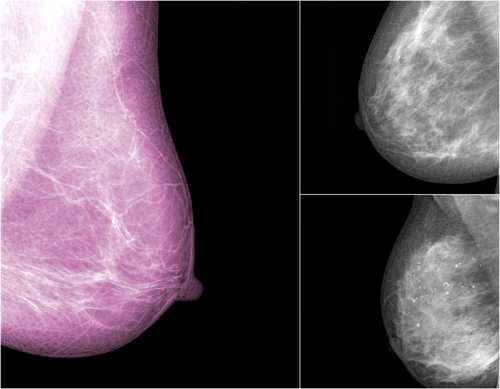Clinical trials are extremely important scientific studies required by the U.S. Food and Drug Administration (FDA) to assess new medical treatments, including treatments for breast cancer. There can be benefits for people with breast cancer to participate in a clinical trial.
Read about pros and cons of clinical trial participation here:
Access to New Treatments
Patients gain access to a treatment that is not otherwise available. The treatment may be better than what is already approved for the condition. Treatments can include new medications, medication combinations, stem cell treatments, or surgeries. New biological approaches, such as reducing tumor growth or preventing tumors from growing, are consistently under study for breast cancer. Treatments may also focus on improving the breast cancer patient’s general care and quality of life. Before participation, the study will be thoroughly explained in an “Informed Consent” document, and by the researchers conducting the study.
Access to Expert Medical Care
By participating in a clinical trial, breast cancer patients can receive access to medical expert advice and treatment at a leading healthcare facility.
Free Treatment or Reduced Costs
Treatments in clinical trials are typically free, or the trial treatments may be available at reduced costs. Sometimes continued treatment is free after the trial ends or in the study’s extension phase. The costs or reduced costs are described in the “Informed Consent” document but should be discussed fully with the study’s organizers before the trial begins.
Help Advance Science, Help Others
Breast cancer clinical trial participants help advance science and help other people with the medical condition. They may help make a new treatment available, but could also improve the general understanding of the disease. People with breast cancer certainly participate in trials and help advance science, but healthy people are sometimes also eligible to help test out new treatments in the earlier stages of clinical trials.
Although current treatments have reduced breast cancer deaths and improved survival, better treatments are still greatly needed. In 2012, 224,147 women and 2,125 men in the United States were diagnosed with breast cancer. During the same year, 41,150 women and 405 men in the United States died from the disease.
Clinical trials are a necessary and required mechanism for testing and approving new treatments before the treatments can be made available for people who need them. Clinical trials are essential for breast cancer research, treatment and hope for the future.
Other Clinical Trial Benefits
Sometimes other incentives are provided for participation in clinical trials. Participants may receive particular financial reimbursement or they may get additional counseling or educational materials. Incentives are detailed in the “Informed Consent” document for review before the trial begins.
Participation Risks
A risk could be that the treatment is not better than what is already available. The trail treatment can have side effects, though the side effects are carefully monitored by researchers throughout clinical trials. The safety of a treatment is thoroughly tested in pre-clinical studies before the treatment is used in humans.
It is also possible that, instead of receiving the treatment, you will be placed in the comparison arm of a clinical trial (a comparator group) and receive a standard treatment instead of the study treatment. Placebos are typically not used in cancer clinical trials, unless it has been determined that the individuals in the placebo group will not receive substantially worse care and worse outcomes than the people in the group receiving the experimental treatment. A placebo is a fake treatment, such as a sugar pill.
If a participant is assigned to the comparator group, study investigators are still required to assure that the participant receives optimal care and must help to advance the understanding and treatment of breast cancer.
In some studies, the comparator group will receive the experimental treatment later. Participants should ask the study organizers if the experimental treatment will eventually be made available to the comparator group.
Participation in a clinical trial could involve more trips to a medical facility and travel than usual for other treatments.
Deciding ‘Yes’ or ‘No’ to Enroll
The decision to enroll in a clinical trial should involve a discussion between the person with breast cancer and their physician. Participation in a trial will depend on many factors, including the motivation for enrolling in a trial, the breast cancer stage, and the trials available.
Sources:
- http://www.cdc.gov/cancer/breast/statistics/

